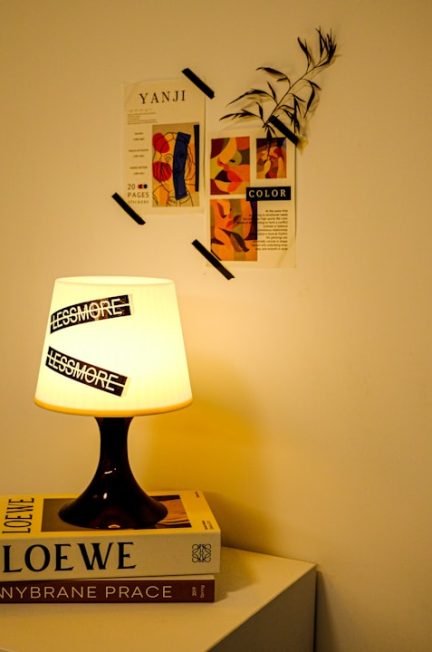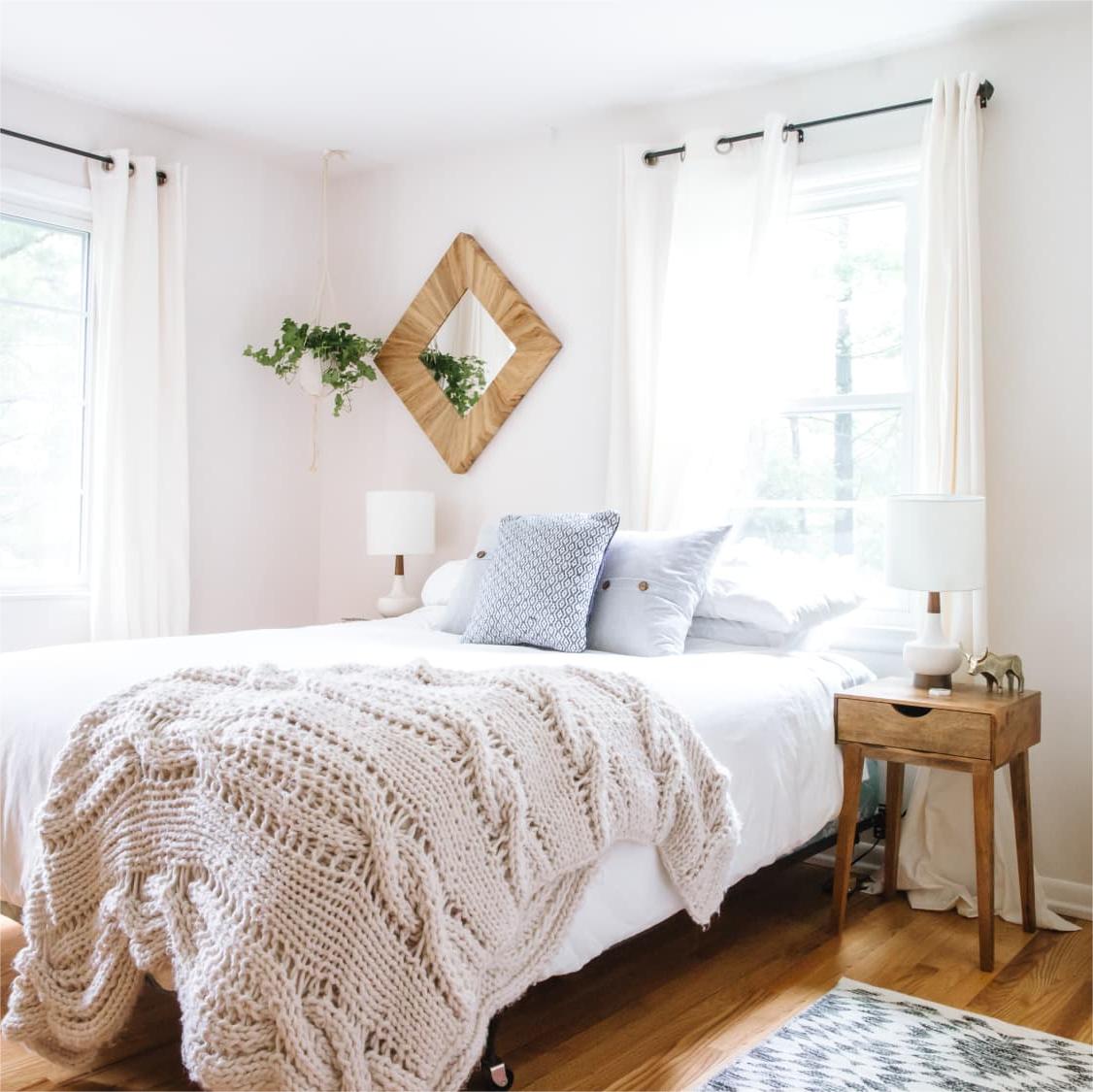Sleep is a fundamental aspect of our lives that is often overlooked. It is during sleep that our bodies and minds have the opportunity to rest, repair, and rejuvenate. Getting enough quality sleep is essential for overall health and well-being. Unfortunately, many people struggle with sleep issues, such as insomnia or poor sleep quality. One simple solution that can help improve sleep quality is using a bedroom night light. In this article, we will explore the benefits of using a night light in your bedroom and how it can contribute to better sleep Nunuboo.
The importance of quality sleep for overall health and well-being
Quality sleep is crucial for our physical and mental health. During sleep, our bodies repair damaged cells, restore energy levels, and regulate hormones. Lack of sleep or poor sleep quality can lead to a variety of health problems, including obesity, diabetes, heart disease, and mental health disorders such as depression and anxiety.
In addition to physical health, sleep also plays a vital role in cognitive function and emotional well-being. When we are well-rested, we are better able to concentrate, make decisions, and regulate our emotions. On the other hand, lack of sleep can impair cognitive function, decrease productivity, and increase the risk of accidents.
How a bedroom night light can improve your sleep quality
A bedroom night light can help improve sleep quality by creating a soothing and relaxing environment. Many people find it difficult to fall asleep or stay asleep in complete darkness. A night light provides a gentle glow that can help ease anxiety and promote relaxation.
The soft illumination from a night light can also help prevent tripping or bumping into objects when getting up during the night. This can be especially beneficial for older adults or individuals with mobility issues who may be more prone to accidents in the dark.
The benefits of using a night light in your bedroom
Using a night light in your bedroom offers several benefits beyond improving sleep quality. One of the main advantages is that it can help create a sense of comfort and security. For children, a night light can provide reassurance and help alleviate fears of the dark. For adults, a night light can create a calming atmosphere that promotes relaxation and reduces stress.
Additionally, a night light can serve as a guide during nighttime bathroom trips or when tending to a baby or young child. Instead of turning on bright overhead lights, which can disrupt sleep patterns, a night light provides enough illumination to navigate the room without disturbing sleep.
Choosing the right type of night light for your needs
When choosing a night light for your bedroom, it is important to consider your specific needs and preferences. There are various types of night lights available, including plug-in lights, battery-operated lights, and portable lights.
If you prefer a permanent fixture, a plug-in night light that can be easily installed in an outlet may be the best option. These lights often come with adjustable brightness settings and timers, allowing you to customize the level of illumination and duration.
Battery-operated night lights are a good choice if you want flexibility in terms of placement. These lights can be placed anywhere in the room without the need for an outlet. They are also portable, making them ideal for travel or camping.
Tips for positioning your night light for maximum effectiveness

To maximize the effectiveness of your night light, it is important to position it correctly in your bedroom. Ideally, the night light should be placed in a location that provides enough illumination to navigate the room but does not create excessive brightness that can disrupt sleep.
Avoid placing the night light directly in your line of sight when lying in bed, as this can be distracting and prevent you from falling asleep. Instead, position the light so that it casts a soft glow across the room without directly shining into your eyes.
Experiment with different placements and brightness settings to find the optimal position for your night light. It may take some trial and error to find the right balance between providing enough light for comfort and avoiding excessive brightness.
How a night light can help reduce anxiety and stress levels
Anxiety and stress are common culprits of sleep disturbances. The gentle glow of a night light can help create a calming atmosphere that promotes relaxation and reduces anxiety. The soft illumination can have a soothing effect on the mind and body, making it easier to unwind and fall asleep.
For individuals who suffer from anxiety disorders or have high-stress levels, a night light can serve as a visual anchor that provides a sense of security and stability. The consistent presence of the night light can help alleviate feelings of unease or restlessness, allowing for a more peaceful sleep.
The impact of blue light on sleep and how to avoid it
Blue light, emitted by electronic devices such as smartphones, tablets, and computers, can interfere with sleep quality. Exposure to blue light in the evening can suppress the production of melatonin, a hormone that regulates sleep-wake cycles.
To avoid the negative effects of blue light on sleep, it is important to limit exposure in the hours leading up to bedtime. This includes avoiding the use of electronic devices or using blue light filters or apps that reduce the amount of blue light emitted.
Using a night light that emits warm or amber-colored light instead of blue light can also help minimize its impact on sleep. Warm-colored lights have a more calming effect on the brain and are less likely to disrupt sleep patterns.
Night lights for children: promoting healthy sleep habits from an early age
Establishing healthy sleep habits from an early age is crucial for children’s development and well-being. A night light can play a significant role in promoting healthy sleep habits by creating a comforting environment that encourages relaxation and reduces anxiety.
For young children who may be afraid of the dark, a night light can provide reassurance and help alleviate fears. The soft glow can serve as a visual anchor that signals bedtime and helps establish a consistent sleep routine.
When choosing a night light for children, opt for one that emits a soft, warm light and has child-friendly designs. Avoid lights that are too bright or have flashing or colorful lights, as these can be overstimulating and interfere with sleep.
Using a night light to create a relaxing bedtime routine
A relaxing bedtime routine is essential for preparing the mind and body for sleep. Incorporating a night light into your bedtime routine can help signal to your brain that it is time to wind down and prepare for sleep.
Dimming the lights in your bedroom and turning on the night light can create a calming atmosphere that promotes relaxation. This can be especially beneficial for individuals who have difficulty transitioning from the busyness of the day to a state of restfulness.
In addition to using a night light, you can enhance your bedtime routine by engaging in activities that promote relaxation, such as reading a book, practicing deep breathing exercises, or listening to soothing music. The combination of these calming activities and the gentle glow of the night light can help prepare your mind and body for a restful night’s sleep.
The role of a bedroom night light in combating insomnia and other sleep disorders
Insomnia and other sleep disorders can significantly impact an individual’s quality of life. While there is no one-size-fits-all solution for these conditions, using a bedroom night light can be a helpful tool in managing symptoms and improving sleep quality.
For individuals with insomnia, the gentle glow of a night light can create a soothing environment that promotes relaxation and reduces anxiety. The consistent presence of the night light can also serve as a visual anchor that helps establish a regular sleep routine.
For individuals with sleep disorders such as sleep apnea or restless leg syndrome, having a night light in the bedroom can be beneficial for safety reasons. These conditions can cause individuals to wake up frequently during the night, and having a night light can help prevent accidents or injuries when getting out of bed.
In conclusion, using a night light in your bedroom can have numerous benefits for sleep quality and overall health and well-being. A night light can create a soothing and relaxing environment, promote feelings of comfort and security, and help reduce anxiety and stress levels. By choosing the right type of night light and positioning it correctly in your bedroom, you can maximize its effectiveness in improving sleep quality. Whether you are struggling with insomnia, have young children who are afraid of the dark, or simply want to create a calming bedtime routine, incorporating a night light into your sleep routine can make a significant difference in your overall sleep experience.



